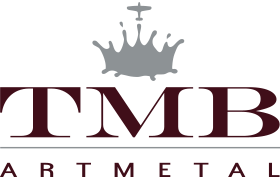WINSTON CHURCHILL
Spitfire 1940 Cufflinks
Two of the most famous icons of the Battle of Britain 1940 are undoubtedly the Spitfire and Winston Churchill.
The legendary Supermarine Spitfire (along with the less celebrated Hawker Hurricane) provided the Royal Air Force’s defensive teeth to repel the mighty German Luftwaffe, whilst Winston Churchill led and inspired the country in its survival. Churchill was an inspired orator and one of the greatest contributions he made for the people of Britain in 1940 was to stir their patriotism, resolve and morale with his powerful and emotional speeches.
For 2015, which marked the 75th anniversary of the Battle of Britain and the 50th of Winston Churchill’s death, TMB launched a design of very special Churchill cufflinks, importantly, made of 1940 Spitfire metal. Thus they combine two Battle of Britain icons – Winston Churchill, who led Britain to victory, and the Spitfire.
There are two editions. Firstly an unlimited edition of links made of aluminium with colour contrasting cigars, and then a more select edition of just 50 pairs with busts of Churchill in bronze and cigars of silver. In both cases the aluminium and bronze is metal from Spitfire X4276 KL-B, legendary RAF ace Al Deere’s personal Spitfire for the latter stages of the Battle of Britain and 1940.
These cufflinks, which are undoubtedly the finest Churchill inspired links ever created, really are amazing pieces of wearable sculptural art, made of Battle of Britain history.
Both versions are fitted with arms of sterling silver. Cufflinks are supplied in very high quality wooden cases with illustrated certificates of provenance.
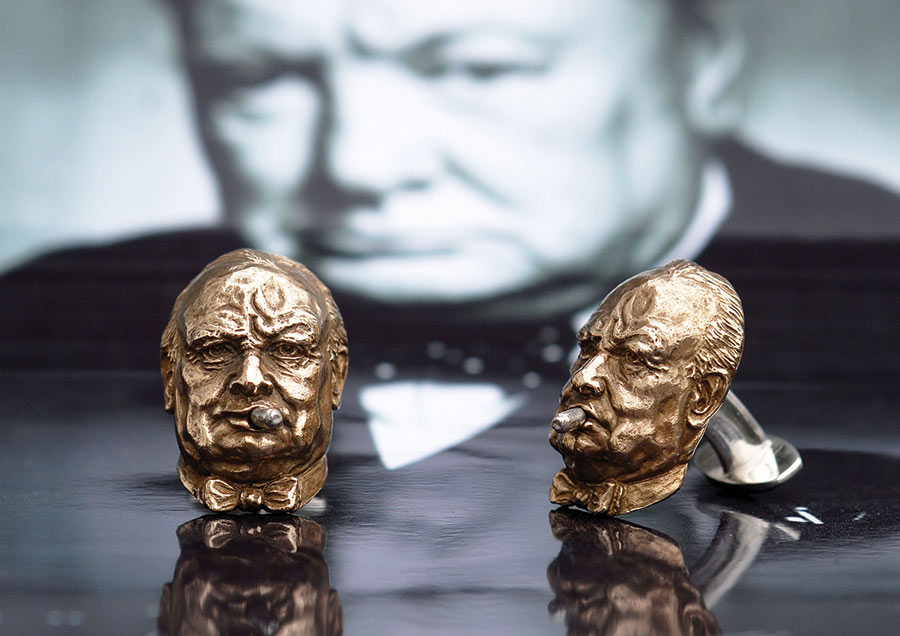
Bronze Churchills with silver cufflink arms and cigars, limited to just 50 pairs.
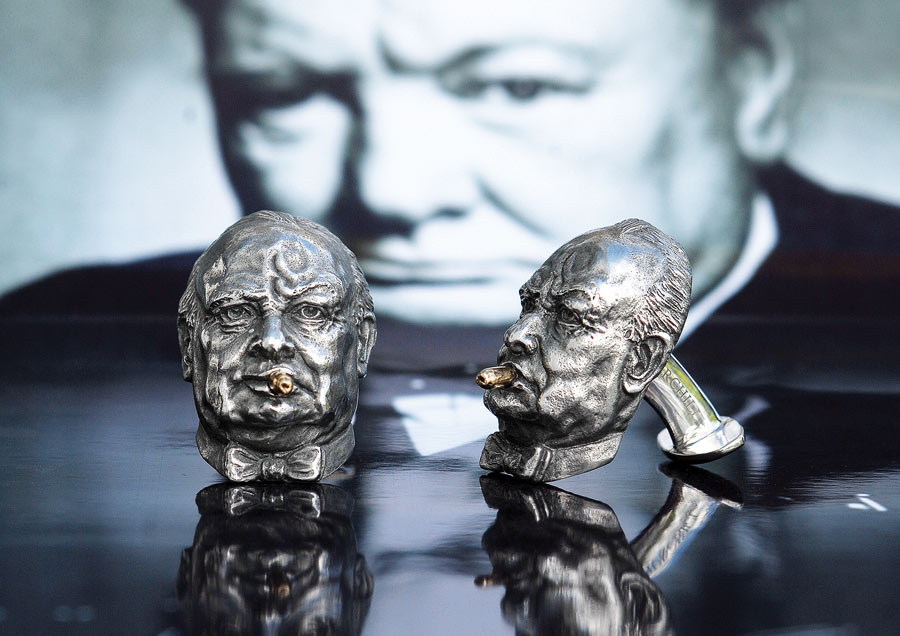
Aluminium Churchills with bronze cigars and silver cufflink arms.
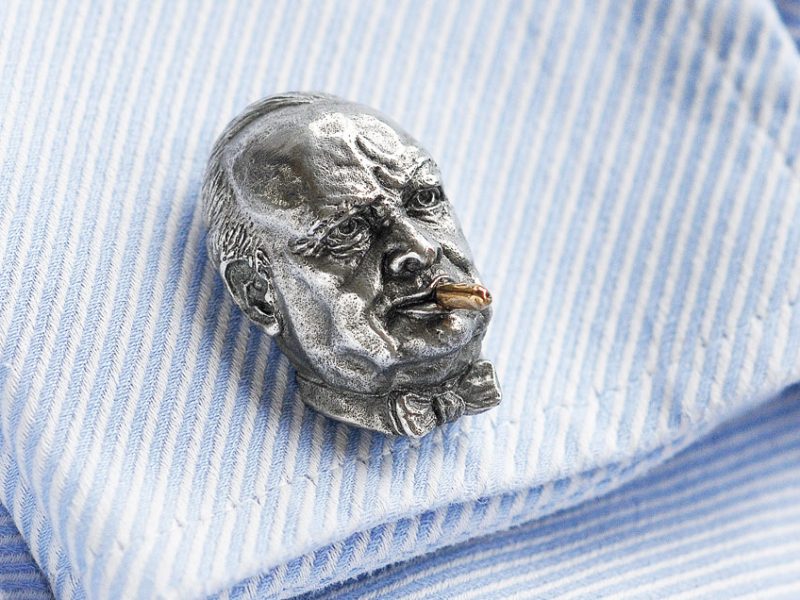
Aluminium Churchill on the cuff.
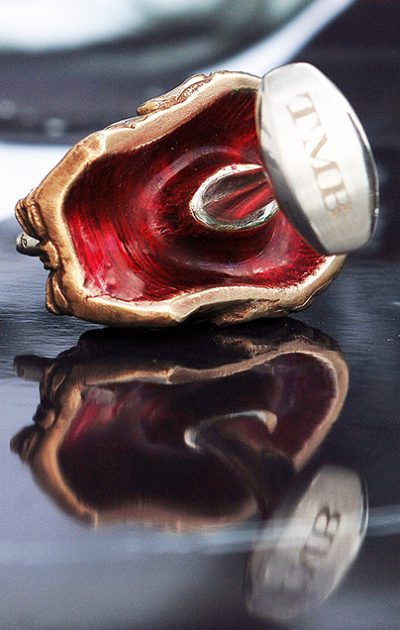
Bronze links have deep red enamel applied to backs,
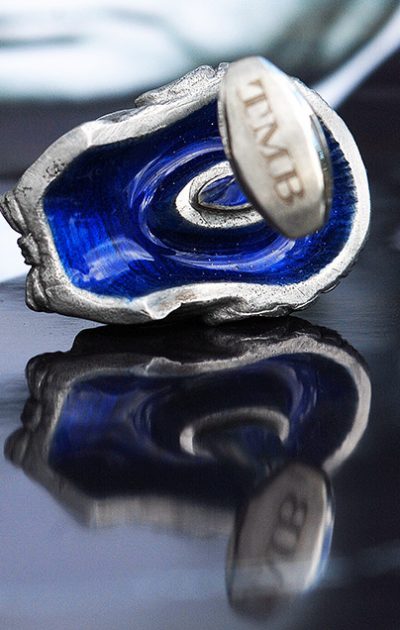
whilst aluminium have blue.
CHURCHILL’S SPEECHES
Of the many speeches Churchill gave three of his most famous from 1940 are below. They still have a powerful effect on one’s emotions to this day.
“We Shall Fight on the Beaches”
The “We Shall Fight on the Beaches” speech was delivered on 4th June 1940, following the successful evacuation of 338,226 Allied soldiers from the beaches of Dunkirk between 27th May and 4th June 1940 by a hastily assembled armada of boats. Though there was national euphoria and relief at this unexpected deliverance, the peril facing Britain was clearly perceived. Defiantly Churchill told the world that Britain would stand firm and never falter:
“We shall go on to the end. We shall fight in France, we shall fight on the seas and oceans, we shall fight with growing confidence and growing strength in the air, we shall defend our island, whatever the cost may be. We shall fight on the beaches, we shall fight on the landing grounds, we shall fight in the fields and in the streets, we shall fight in the hills; we shall never surrender”
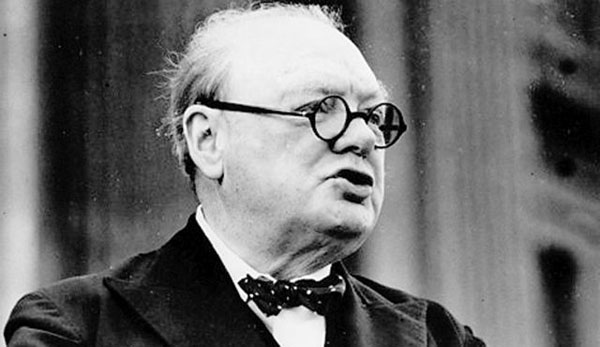
“The Few”
Churchill’s famous “The Few” speech was delivered on the 20th August 1940 at the height of the Battle of Britain, with the Royal Air Force’s Fighter Command at breaking point, their resources in the south of England fully committed. Churchill knew that the only way to stop a planned Nazi invasion of Britain was the RAF’s fighters, and if they and their airfields of southern England were neutralised the war would surely be lost. August 1940 was one of the hardest fought periods of the Battle, which officially lasted from 10th July to 31st October 1940, and Churchill gave his tribute to the RAF fighter pilots who, exhausted and outnumbered, were fighting for their lives and their country in the skies above Britain. Following this speech the heroic pilots of Fighter Command, upon who’s young shoulders so much rested, were collectively known as “The Few”:
“The gratitude of every home in our Island, in our Empire, and indeed throughout the world, except in the abodes of the guilty, goes out to the British airmen who, undaunted by odds, unwearied in their constant challenge and mortal danger, are turning the tide of the World War by their prowess and by their devotion. Never in the field of human conflict was so much owed by so many to so few.”
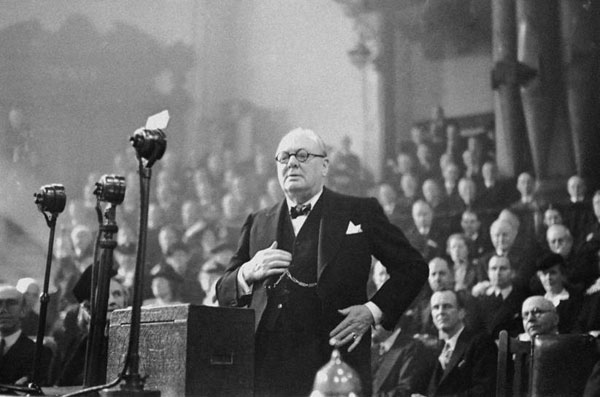
“Finest Hour”
Perhaps Churchill’s most powerful and emotional speech was his “Finest Hour”, delivered at the House of Commons on 18th June 1940, at the end of the Battle of France but before the beginning of the Battle of Britain. France had surrendered, allowing Hitler’s Luftwaffe to base their fighters and bombers unopposed just the other side of the English Channel and Churchill knew that what lay ahead in the next few months would be decisive. To this day the speech has a powerful effect upon one’s emotions:
“What General Weygand has called the Battle of France is over … the Battle of Britain is about to begin. Upon this battle depends the survival of Christian civilisation. Upon it depends our own British life, and the long continuity of our institutions and our Empire. The whole fury and might of the enemy must very soon be turned on us. Hitler knows that he will have to break us in this island or lose the war. If we can stand up to him, all Europe may be freed and the life of the world may move forward into broad, sunlit uplands. But if we fail, then the whole world, including the United States, including all that we have known and cared for, will sink into the abyss of a new dark age made more sinister, and perhaps more protracted, by the lights of perverted science. Let us therefore brace ourselves to our duties, and so bear ourselves, that if the British Empire and its Commonwealth last for a thousand years, men will still say, ‘This was their finest hour’.”
